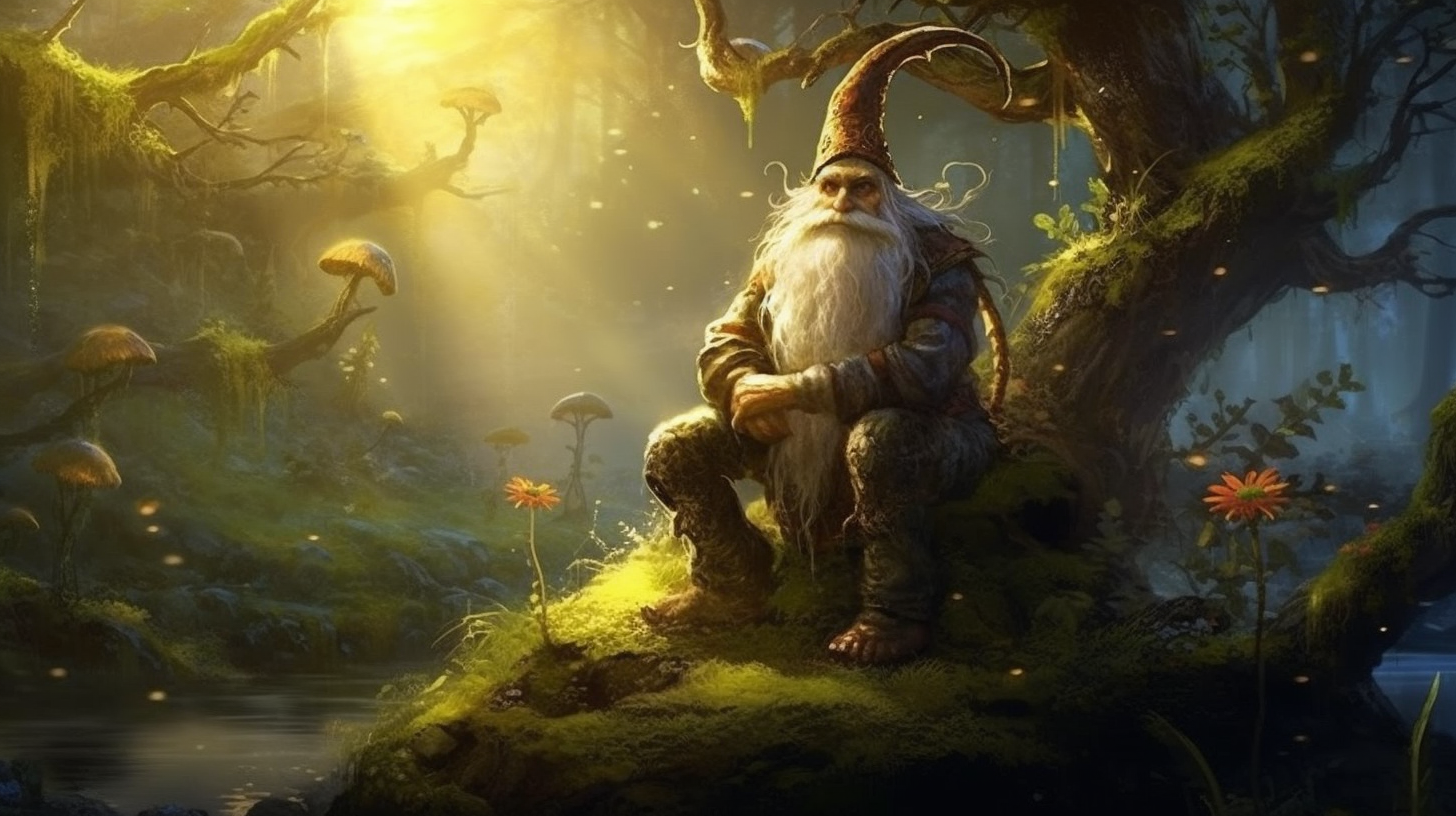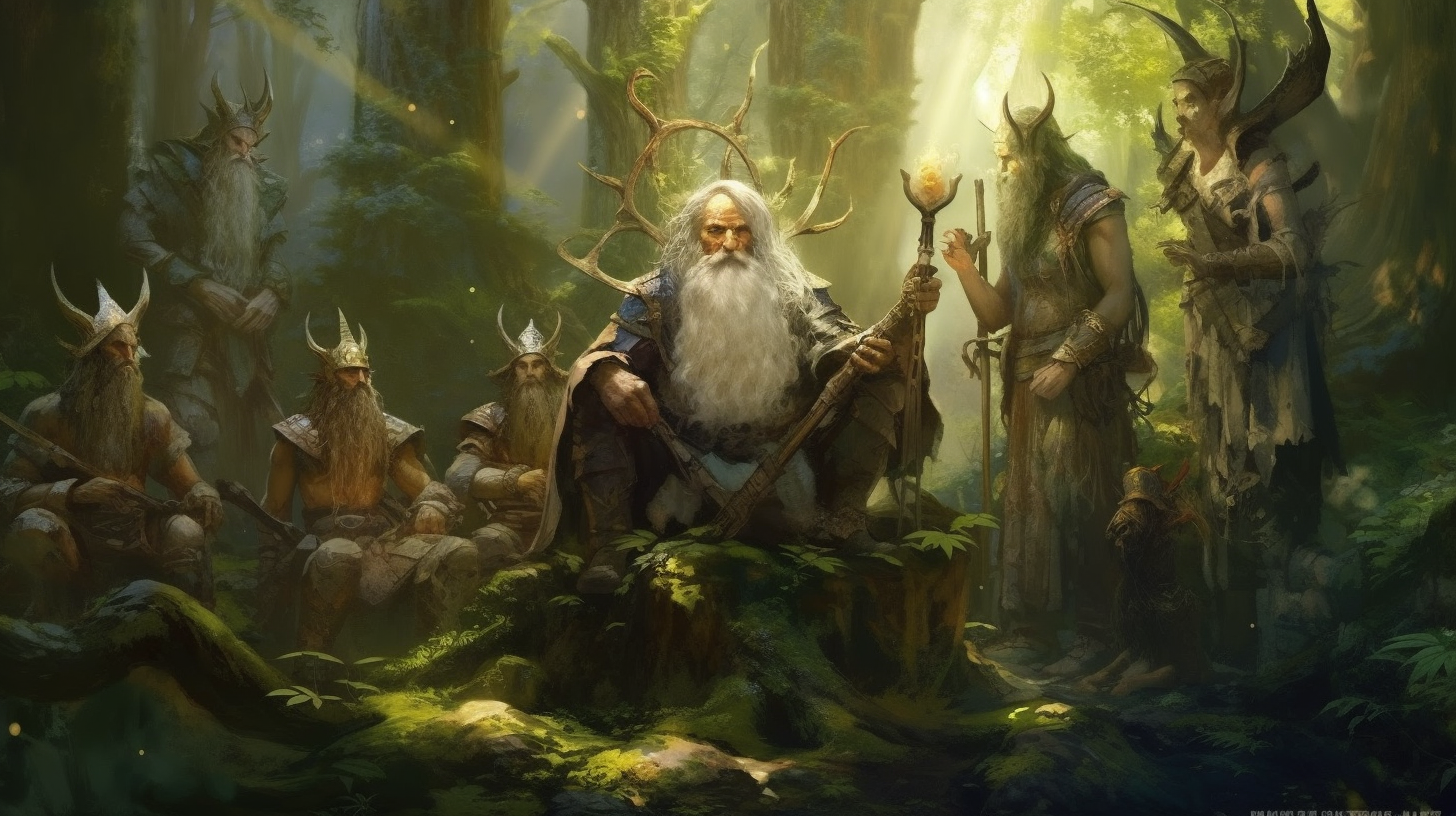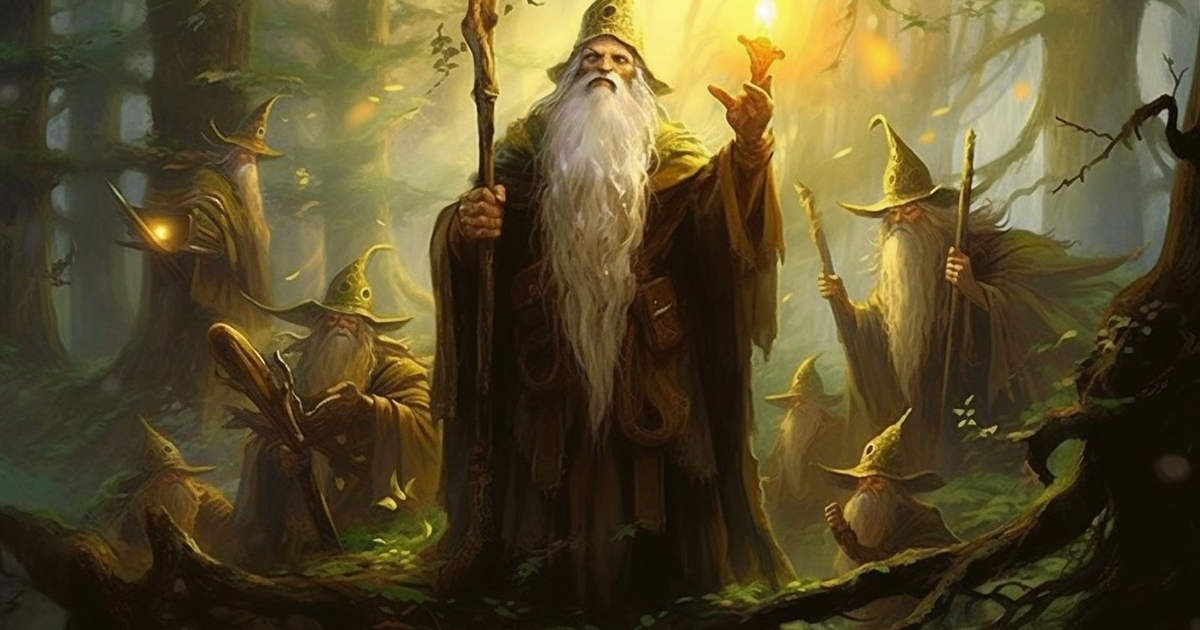An Introduction to a Fascinating Realm:
For centuries, the alluring realms of elves and dwarves in European mythology have enchanted the minds of many. These mystical beings, with their magical and enigmatic nature, have left an unforgettable imprint on folklore, literature, and popular culture. In this piece, we venture into the mesmerizing world of elves and dwarves, unraveling their origins, traits, and enduring presence in European mythos.
Tracing Back the Origins and Mythical Foundations:
Elves and dwarves find their origins deeply rooted in the mythologies of diverse European cultures. Take Norse mythology, for example, where elves, known as álfar, were revered as divine entities symbolizing beauty, wisdom, and eternal life. Residing in the ethereal realm of Alfheim, these creatures were often depicted as radiant, magical beings possessing extraordinary powers.

In contrast, dwarves held a significant role in Norse mythology as adept craftsmen and artisans. Associated with the earth, these beings were believed to inhabit subterranean domains. Renowned for their unparalleled craftsmanship, dwarves were sought after for their ability to craft exceptional weapons and exquisite treasures.
Distinct Traits and Manifestations:
Elves and dwarves boast unique characteristics that distinguish them from humans and other legendary creatures. Elves are often characterized as graceful, elegant, and eternally youthful beings with a profound bond with nature, particularly the forests, rivers, and meadows. These intelligent entities are known for their ability to bestow blessings or curses upon mortals.
Conversely, dwarves are depicted as sturdy, stout creatures of shorter stature, typically dwarfing humans. With long beards and robust bodies, they are synonymous with exceptional craftsmanship. Dwarves excel in mining, metalworking, and creating magnificent artifacts, with their legendary talent in forging weapons and treasures being unparalleled in mythological narratives.
Interactions with Humankind in Mythology:
Elves and dwarves share intricate relationships with humans in European folklore. While elves are generally portrayed as benevolent beings who offer guidance, protection, or enchantment to humans, dwarves exhibit a varied spectrum of behaviors. In myths, some dwarves are depicted as friendly and helpful, sharing their wisdom and gifts, while others display mischievous or even antagonistic tendencies, testing the mettle and cunning of those they encounter.

Legacy and Symbolic Importance:
The enduring charm of elves and dwarves is evident in their lasting impact on European culture. From ancient sagas and folklore to acclaimed literary works like J.R.R. Tolkien’s “The Lord of the Rings,” these mythical beings have inspired numerous narratives of magic, bravery, and adventure. Their portrayal in contemporary fantasy literature, movies, and games continues to enthrall audiences globally.
Beyond their influence in popular culture, the realms of elves and dwarves hold symbolic significance. Elves, embodying harmony, grace, and nature’s mystical essence, represent beauty and balance. Dwarves, symbolizing hard work, perseverance, and the rewards of skilled labor, showcase dedication and the fruits of laborious efforts.
In Closing:
Elves and dwarves, with their enchanting allure and divine attributes, have cemented themselves as iconic figures in European mythology. Whether as nature’s guardians or master craftsmen, these captivating beings continue to intrigue us with their timeless stories. Their impact on art, literature, and the modern imagination underscores the enduring influence of mythological traditions, underscoring the everlasting enchantment of the fantastical and magical in our lives.
